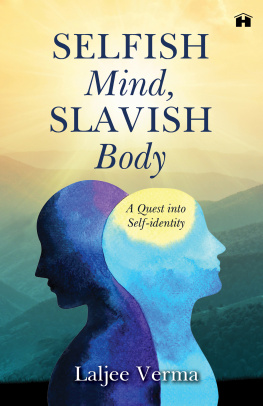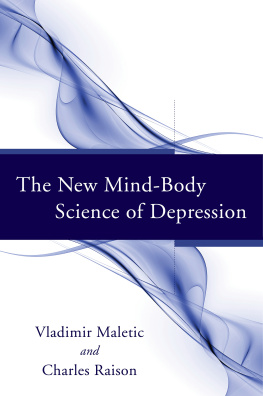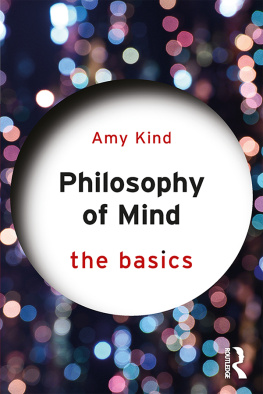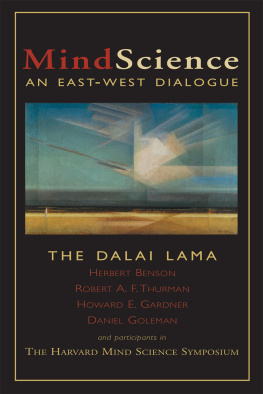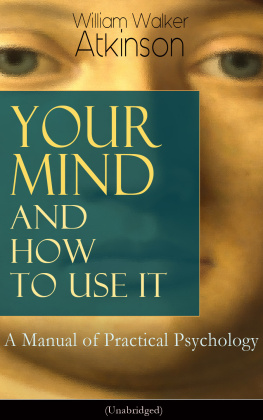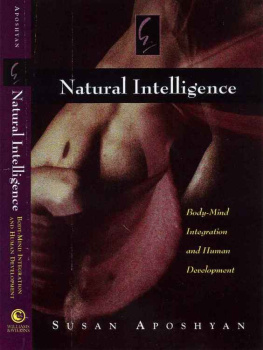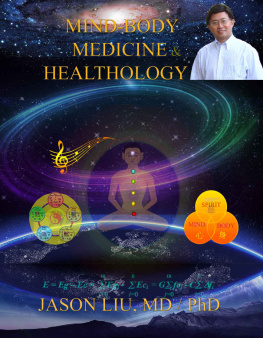Hay House Publishers (India) Pvt. Ltd.
Muskaan Complex, Plot No.3, B-2 Vasant Kunj, New Delhi-110 070, India
Hay House Inc., PO Box 5100, Carlsbad, CA 92018-5100, USA
Hay House UK, Ltd., The Sixth Floor, Watson House, 54 Baker Street, W1U 7BU, UK
Hay House Australia Pty Ltd., 18/36 Ralph St., Alexandria NSW 2015, Australia
Email:
www.hayhouse.co.in
Copyright 2022 Laljee Verma
The views and opinions expressed in this book are the authors own and the facts are as reported by him. They have been verified to the extent possible, and the publishers are not in any way liable for the same.
All rights reserved. No part of this publication may be reproduced, by any mechanical, photographic, or electronic process, or in the form of a phonographic recording, nor may it be stored in a retrieval system, transmitted, or otherwise be copied for public or private use other than for fair use as brief quotations embodied in articles and reviews without prior written permission of the publisher.
ISBN 978-93-91067-99-1
ISBN 978-93-91067-05-2 (e-book)
Printed at Repro India Limited
For my grandchildren:
Shagun, Satvik, Shobhit, and Shreyas.
May you one day find the inclination to read and enjoy this book and its contents.
MAN IS NOT INFALLIBLE. WE ALL COMMIT MISTAKES, and the results of an error can be external or internal. But a mistake may not represent the core nature of an individual. One may do something quite against his fundamental nature. In such events, the mind may not be within the control. The mind, at times, defies logic and steps out of the restraining envelop. The question then is what can control the mind? The answer is that it is the mind only that can control the mind. This may sound contradictory, but there is no other way.
One may wonder as to how the mind can exercise control over itself. That is precisely the point. We may ask then how can the self, exercise control over itself. The answer is that the self has many mechanisms within through which it can exercise restraint. Likewise, the mind also has a corrective tool through which it can exercise self-control. As in the God-concept, we have a god and an anti-god competing. Similarly, in our mind, virtuous and sinful thoughts continuously compete with each other. The outcome of an action will depend upon which of these two elements dominate at a particular time and space. No doubt, restraining mechanisms such as rationality and logic does exist in our mind, but it may fail, or purposely allowed to fail, at times. And when the virtuous element fails, the sinful element dominates, resulting in an undesirable act. Sinful actions may provide momentary pleasure, but the fun may quickly transform into a continuous painful memory of having committed a sinful activity transgressing the logical boundary. Pleasure and joy are different states of feeling. Pleasure is momentary, whereas joy is long-lasting and durable. Most of us look for pleasure, not joy. Only a few go after joy, and very few aspire to experience everlasting joy.
Sometimes, under the emotive influence, we do something quite against our basic nature. During such cases, we willingly let go of the restraint over our mind. The ego, and its soldierslust, greed, envy, etc.acquire demonic proportion and subdue the rationality. That is when we commit acts which should have never happened. This is the story of many. No one in the world is free from ego, lust, and greed. When such forces take over, it is a natural tendency to veer towards sin. And once such a thing happens, only then one realises that he does not know himself and his mind. If one does not fight a faulty experience and put a restraint over his mind, one becomes a slave of his ego. The mind is selfish, it does not like to be restrained; it tries to lord over the body as its slave. But unrestrained mind is a devils warehouse hoarding sinful thoughts, and therefore, one must master the mind and not be its slave. It is therefore necessary to identify it. Only then a corrective action can be applied. But for this, one must be ruthlessly objective.
Everyone grows up oblivious of the correct worldview because our subjective mind determines the cognised outcome of what we see and perceive. Most of us lack objectivity. That is why each of us has a different worldview. Each persons mind is different, and therefore, the worldview of each person will be different. The actual world may be quite different than conceived with our individuated mind. Moreover, individual mind matures in stages of physical development. The worldview of a child is full of awe, inquisitiveness, and admiration, and his mind is much more curious. He wants to gather as many experiences as he can. But with time, his mind conditions itself to existential experience and conformity of social norms and ethos. As the child grows to a young adult, he sees the world as a challenge and when he grows old, he wonders about the world engulfed in the remarkable divine contribution that makes us walk and talk! However, at all these stages, the doubt about our true self keeps lurking. And truthfully, we all keep revisiting the quintessential question: who am I?
The mind is an essential ingredient of the self. We may perceive it as an object, gross or abstract, with sense organs but there is no way we can conceive it without involving our mind. If we do not know our mind, its peculiarities, predilection, bias, etc., our feelings and actions will remain individualistic, and heavily biased within the peculiar individual mental construct.
Knowing the self is nothing else but self-realisation. It is a state difficult to achieve as most of us like to live within the ramparts of ego and self-aggrandisement. Subjectivity prevents us from realising the self. It is difficult for anyone to be totally objective, all the time. At the same time, it is not possible to achieve an objective standpoint unless we are severely critical of ourselves. Every action has two parts: the why and the how. When we look back, we recapitulate the how part but do not know the why part. Therefore, we know what we did, but not why we did it!
I kept wondering day in and day out that why we do not know ourselves. What is the impenetrable screen limiting our vision to see within ourselves? What is the barrier between me and my mind? That is when I decided to research the issue. The result of two years of research and contemplation is this book in which I attempt to dismantle the mystery of the self and the mind.
Through this book, I examine various factors that determine the qualia of an individual, his nature, and his mind, and I have tried to lay bare the individuality and self-centricity that prevents us from knowing the self.
Know then thyself, presume not God to scan, the proper study of mankind is man.
Alexander Pope
THE MOST FAMOUS MAXIM KNOW THYSELF IS CARVED IN the temple of Apollo at Delphi. The oracle was famous in ancient Greece. Kings, leaders, and philosophers regularly visited personally or through an envoy or messengers to seek answers to critical issues. It is said that the oracle always gave correct prophecy till the Lydian King Croesus wanted an answer to the lurking doubt whether to cross the Halys River, the boundary with the Persian Empire, and attack the forces of Cyrus the Great. The famous reply he received was that if he crossed the river, a great empire would be demolished. He took it for granted that the Persian empire and not the Lydian would be one to get demolished. Thus, he crossed the river and attacked the forces of Cyrus the Great. Though superior in number, his army lost the battle (Battle of Thymbra, 546 BC), the capital Sardis was taken, and Lydia became a satrapy of the Persian Empire. The oracle lost its prime glory, but the priests defended saying that King Croesus misinterpreted the prophecy.

